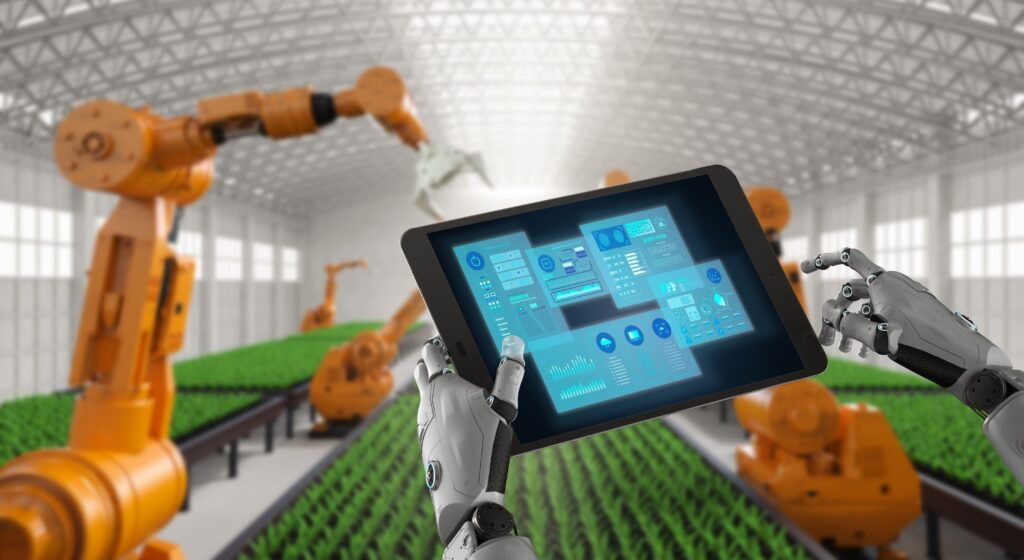Artificial Intelligence (AI) is revolutionizing various industries, and agriculture is no exception. The integration of AI into farming practices promises to enhance efficiency, sustainability, and productivity. A notable development in this domain is the collaboration between Bayer, a global leader in life sciences, and Microsoft, a pioneer in technology. This partnership aims to develop AI solutions specifically tailored for the agricultural sector, marking a significant step toward the digital transformation of farming.
Background
Bayer has a longstanding history in the agricultural industry, offering a wide range of products and services, including seeds, crop protection solutions, and digital farming tools. The company has been at the forefront of integrating digital technologies into agriculture, exemplified by its Climate FieldView™ platform, which provides farmers with data-driven insights to optimize their operations.
Microsoft, renowned for its advancements in cloud computing and AI, has been actively involved in developing industry-specific AI solutions. The company’s Azure platform offers robust cloud services that support various sectors, including agriculture. Microsoft’s commitment to AI innovation is evident through initiatives like the Azure Data Manager for Agriculture, designed to enhance data interoperability and drive digital transformation in the agri-food industry.
Details of the Collaboration
In November 2024, Bayer and Microsoft announced a strategic partnership to develop AI models fine-tuned with industry-specific data. These models are available for licensing through Microsoft’s online catalog, enabling businesses to integrate advanced AI capabilities into their operations. Bayer’s AI model, for instance, provides insights into agronomy and crop protection, assisting users in making informed decisions regarding insecticide ingredients and product applications for various crops.
This collaboration builds upon previous joint efforts, such as the launch of AgPowered Services and the Azure Data Manager for Agriculture in March 2023. These cloud-based solutions offer ready-to-use capabilities for businesses and organizations, facilitating the development of digital tools that support favorable agronomic outcomes for growers. By combining Bayer’s extensive agricultural expertise with Microsoft’s cloud infrastructure, the partnership aims to drive innovation and transparency across the agri-food value chain.
Through this collaboration, Bayer and Microsoft are leveraging their respective strengths to deliver AI solutions that address the unique challenges of the agricultural sector. By providing tailored AI models and cloud-based services, they aim to empower farmers and agribusinesses with tools that enhance productivity, sustainability, and decision-making in agriculture.

Applications and Benefits
The collaboration between Bayer and Microsoft has led to the development of AI-driven solutions that offer significant advantages across various facets of agriculture:
- Farm-Level Impact: Bayer’s AI models, such as the E.L.Y. (Expert Learning for You) system, provide farmers with actionable insights into crop protection and agronomy. These tools assist in making informed decisions regarding pesticide application, crop management, and disease prevention, thereby enhancing yield and reducing resource wastage.
- Environmental and Economic Benefits: By leveraging AI to identify effective herbicides with minimal environmental impact, Bayer addresses the challenge of herbicide-resistant weeds. This approach not only promotes sustainable farming practices but also reduces the time and cost associated with developing new crop protection solutions.
- Business Advantages: AgPowered Services, developed in collaboration with Microsoft, enable agribusinesses to build digital tools that enhance operational efficiency and transparency. These services facilitate better supply chain management, regulatory compliance, and customer engagement, driving innovation and competitiveness in the agri-food industry.
Challenges and Limitations
Despite the promising benefits, the integration of AI in agriculture presents several challenges:
- Data Privacy and Integration: The effectiveness of AI models depends on access to high-quality, comprehensive data. However, concerns regarding data privacy and the integration of disparate data sources can hinder the development and deployment of AI solutions.
- Adoption Barriers: Farmers may face obstacles in adopting AI technologies due to factors such as limited digital literacy, high initial investment costs, and skepticism about the reliability of AI-driven recommendations.
- Financial Viability: Developing and maintaining AI solutions require substantial financial resources. Ensuring the economic sustainability of these technologies, especially for small-scale farmers and agribusinesses, remains a critical concern.
Future Implications
The Bayer-Microsoft partnership sets a precedent for cross-industry collaborations aimed at leveraging AI to address complex challenges. The integration of AI in agriculture holds the potential to:
- Advance Sustainability Goals: AI-driven insights can promote sustainable farming practices by optimizing resource use, reducing environmental impact, and enhancing biodiversity.
- Bridge the Digital Divide: By providing accessible and user-friendly AI tools, the collaboration can help bridge the gap between traditional and digital farming practices, empowering farmers with technology-driven solutions.
- Foster Innovation: The partnership encourages the development of new AI applications tailored to the unique needs of the agricultural sector, fostering a culture of innovation and continuous improvement.
In summary, the Bayer-Microsoft collaboration exemplifies the transformative potential of AI in agriculture, offering solutions that enhance productivity, sustainability, and resilience in the face of evolving challenges.




